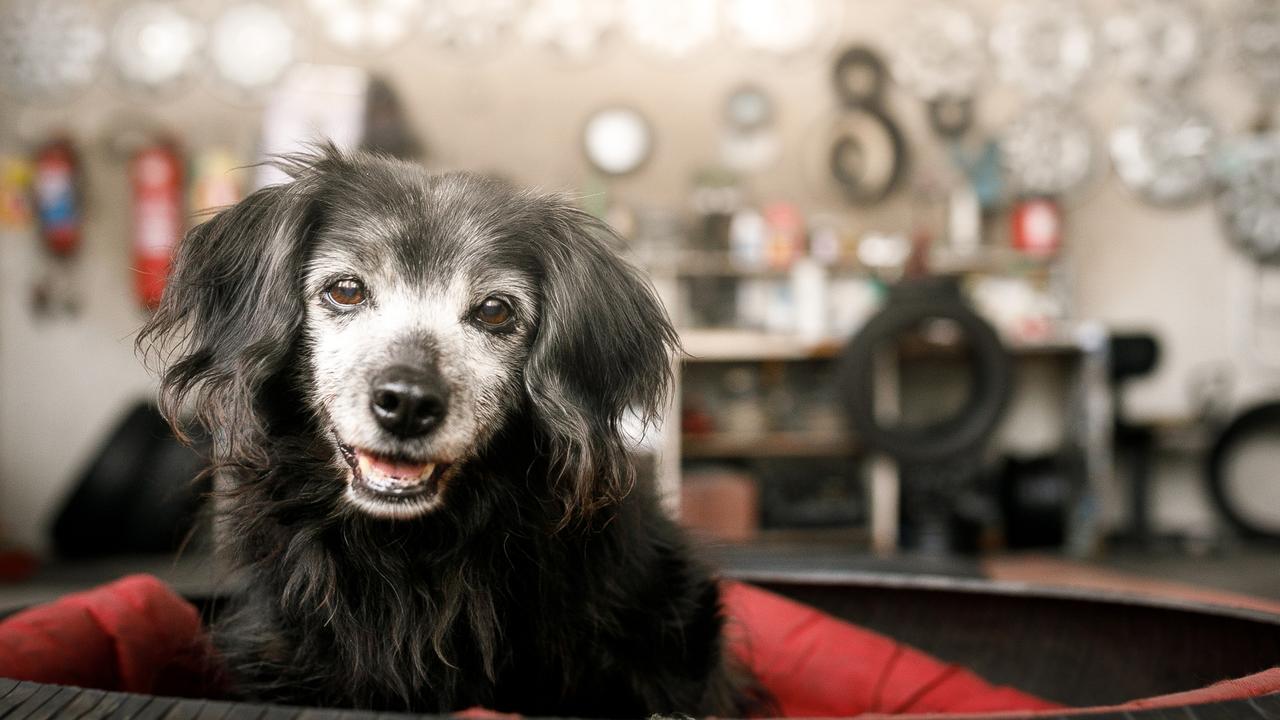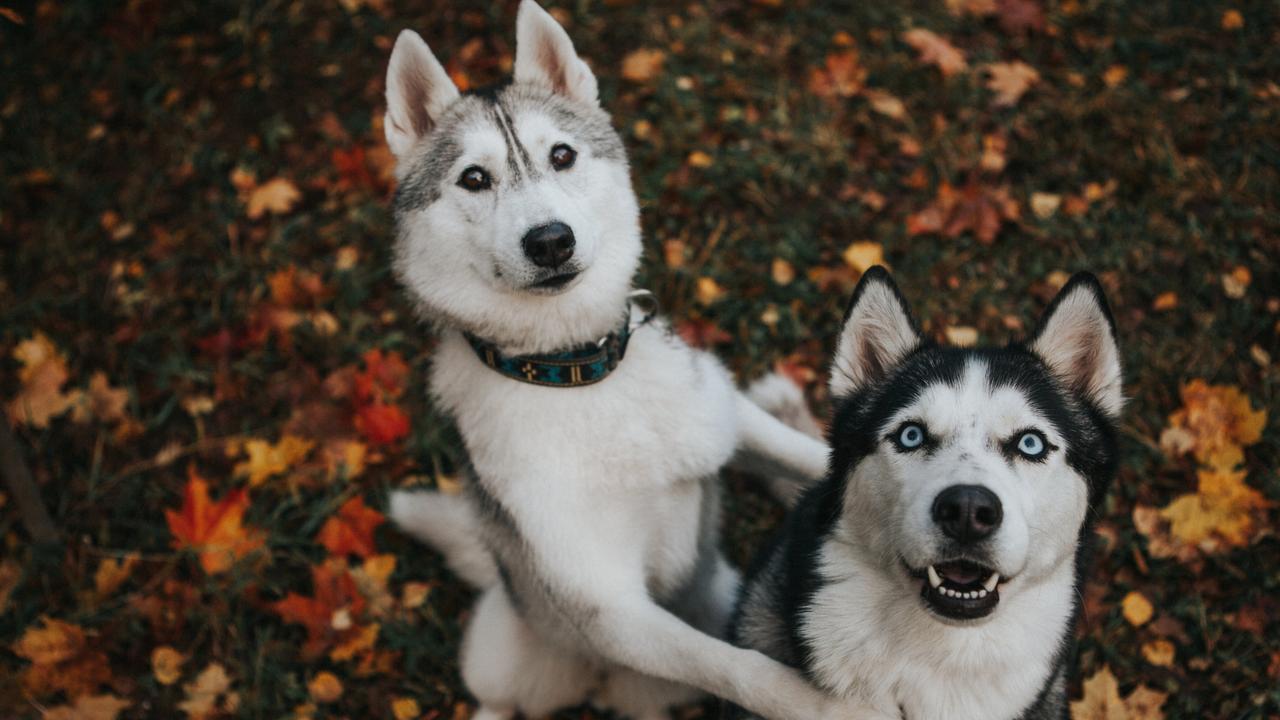Why Matt Good, a former army investigator, credits his service dog with saving his life
When former army investigator Matt Good returned from Afghanistan, his PTSD spiralled out of control. But, thanks to Ulric, his friend and service dog, he is still alive today.
Pets and Wildlife
Don't miss out on the headlines from Pets and Wildlife. Followed categories will be added to My News.
Former Australian Defence Force investigator Matt Good was on holiday with his family in 2018 when he suddenly found himself in desperate need of help.
Good, who suffers from post traumatic stress disorder (PTSD) from his time in the army, had an argument with a family member and stormed away, feeling suicidal.
“With PTSD, your response is more intense than what it would normally be,” Good said.
“I was pacing, completely in my head, not in the moment.”
Luckily, his most trustworthy companion was by his side: a dog named Ulric.
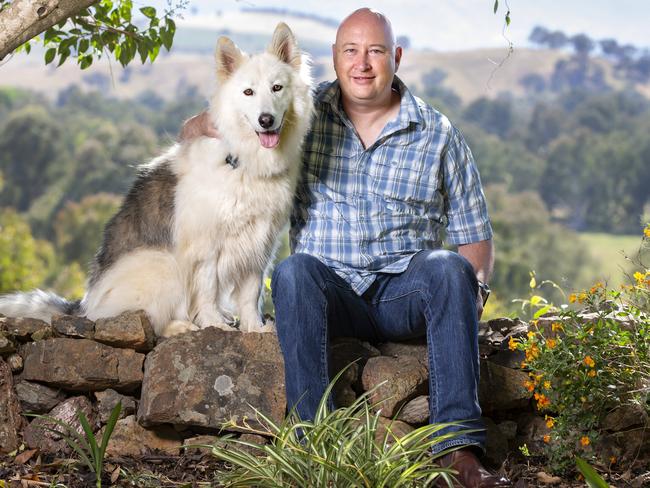
“He was all over me,” Good said.
“He got in my face enough that I was patting him and he brought me back into the moment. It gave my wife enough time to find me and calm me down.
“If Ulric hadn’t been with me, I would have gone off and done something stupid.”
DOGS OF OZ COMP
Do you have Australia’s Top Dog? Enter here and WIN!
Dogs like Ulric have been saving the lives of veterans for decades.
Ulric is a PTSD service dog who provides intuitive tactile response to anxiety, as well as other tasks he is specifically trained for.
“Service dogs have an ability to understand the emotions of their owner,” Good said, who lives with wife Jane, an executive assistant at a local council, in Markwood, in northeast Victoria.
“They play such an incredible role.”
MORE DOGGIE NEWS
Meet the brave dog sniffing out fire causes
Aussie cattle dog secret link to the dingo
How one man and his dogs are keeping kids out of jail
Until he began suffering from PTSD, Good never imagined he would need such a canine.
The New Zealand-born 47-year-old was an investigator with the ADF Investigative Service when he was deployed to Afghanistan in 2010.
“I was part of an inquiry team, looking into the deaths of six Australian personnel,” he said.
Good, whose grandfather served in the Royal New Zealand Air Force during World War II, said while he was confronted with some harrowing statements and material, “I had no issues with it. I loved the job”.
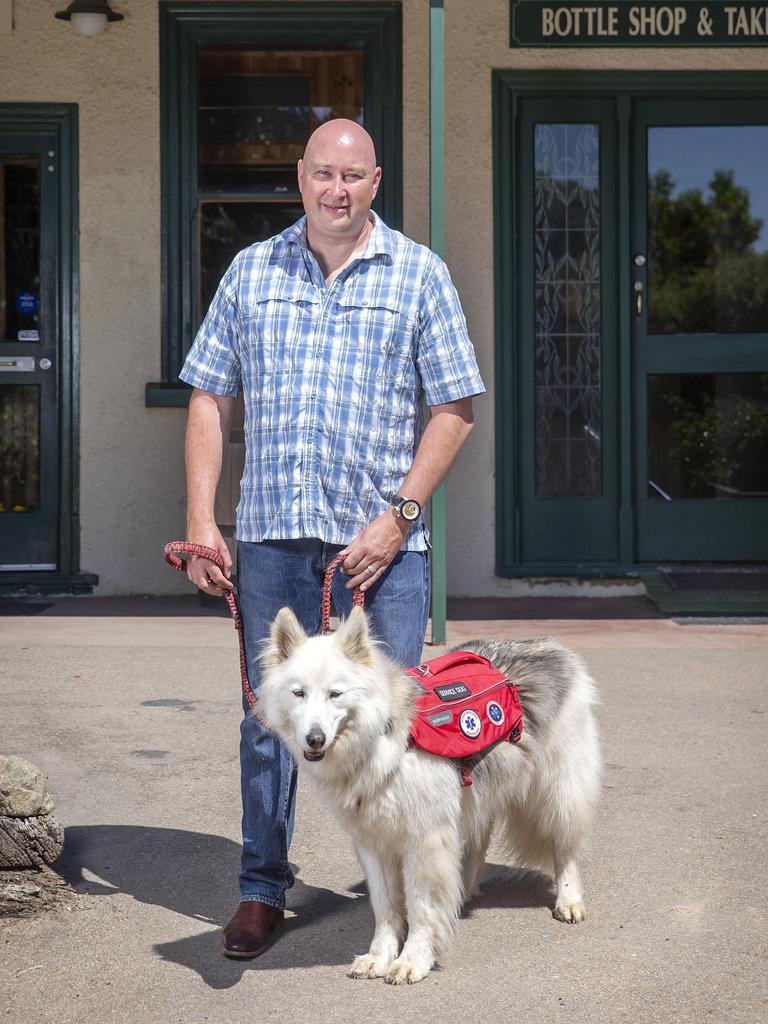
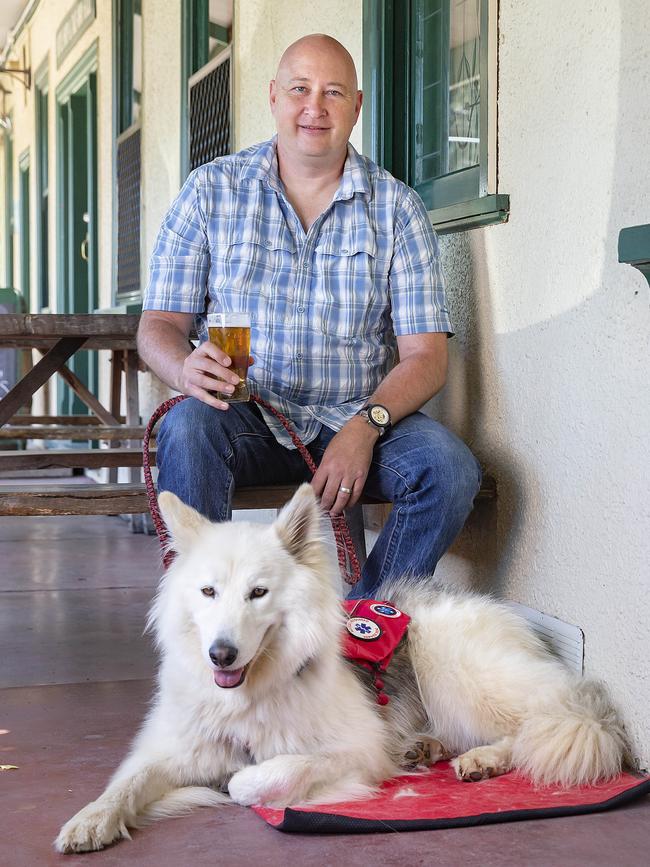
Good suffered a fall while in Afghanistan, and though he was able to carry on with his
duties for years, his back gradually deteriorated.
While working out in a gym back in Australia, his “my back went out.”
“I was barely able to walk,” Good said.
He required major back surgery and needed a disc to be replaced in his spine.
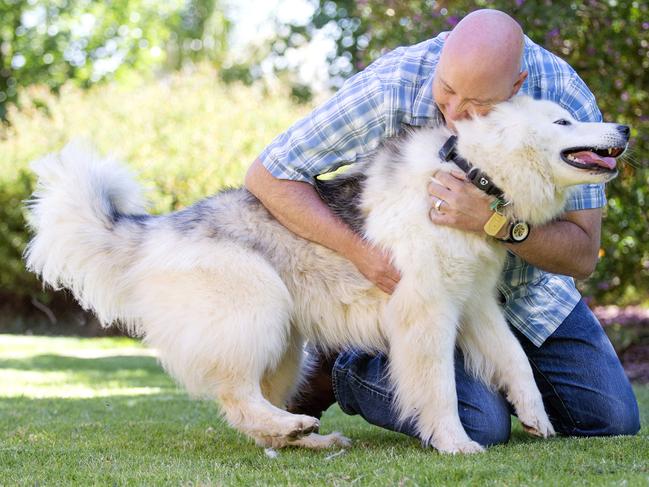
Unable to work or exercise, Good began to suffer mentally.
As he tells it, it was his work and his other physical activity which had been keeping his demons at bay.
“You have your coping strategies and that keeps all the nasty stuff tucked away in boxes in the back of your brain,” Good said.
“But when you don’t have access to those strategies, all of a sudden you’re ruminating about what’s in those boxes. It was the things that I saw as an investigator.
“I would have hallucinations — I was eating a steak, but all I could see was brain on the plate. Because that’s part of what I was exposed to.”
MORE DOGGIE NEWS
How ‘good boys’ can cure anxiety, depression, loneliness
The secret to training your dog
How one man and his dogs are keeping kids out of jail
It only got worse.
“I went into depression,” Good said. “I was hyper vigilant, I couldn’t sleep. By the end of it I was agoraphobic.”
Good was aware of the role provided by service dogs and sought help from Whiskey’s Wish, a not-for-profit organisation in Queensland which provides service dogs and service dog training for veterans, first responders and correctional officers with PTSD.
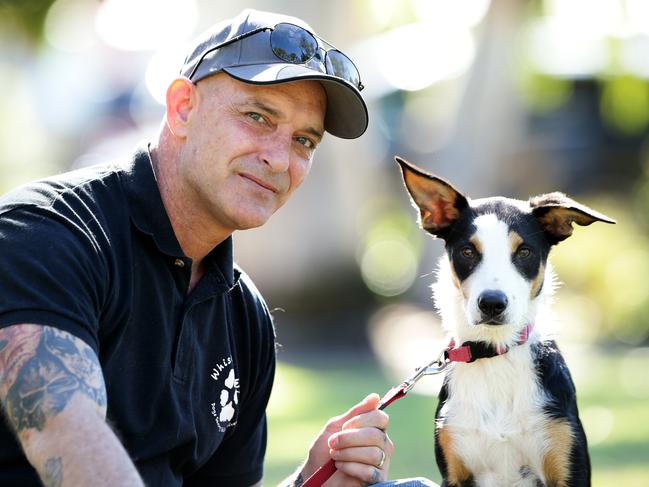
Founded by ADF veteran Scott Jackman, who suffers from PTSD, Whiskey’s Wish is named in honour and memory of his loyal service dog, Whiskey, who died of cancer.
It is run by volunteers, now including Good.
“We provide assistance and support,” Liz Jackman said.
She is Scott’s wife and the treasurer at Whiskey’s Wish.
“We develop a training program for the handler. We thought it was more important for the handler to train the dog, so they become intuitive to their handlers,” she said.
Once trained, service dogs are recognised as medical aids and given an official “Service Dog” jacket.
They are permitted to enter places normally forbidden to animals, such as restaurants and pubs.
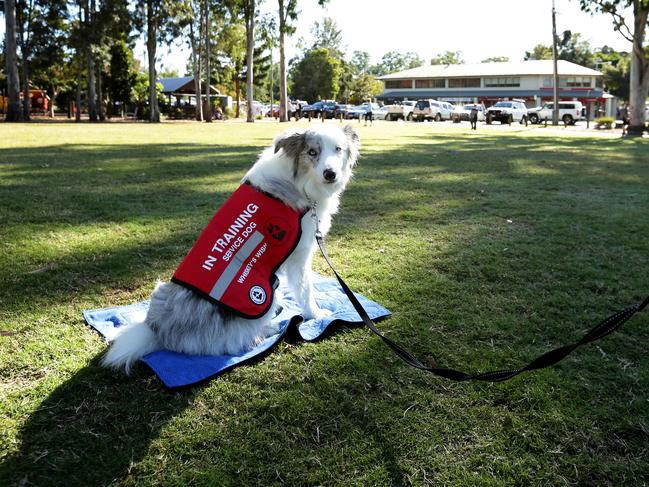
Good trained Ulric, a Lykos who he already owned as a puppy, to perform three tasks: wake him from nightmares, act as a brace to provide support when getting up and respond to his anxiety.
“Ulric will notice my stress and he’ll either put a little paw on my knee or nudge me, stick his head between my legs,” Good said.
“He’s basically saying, ‘Pay attention to me, there’s something going on. We need to sort something out.’”
Service dogs are crucial in getting PTSD sufferers back into the community, but it comes with one drawback.
“The biggest issue is people seeing a dog and it becomes a form of entertainment, like, ‘Oh, can I pat him?’” Good said.
“What they’re doing is distracting the dog from doing its job.”
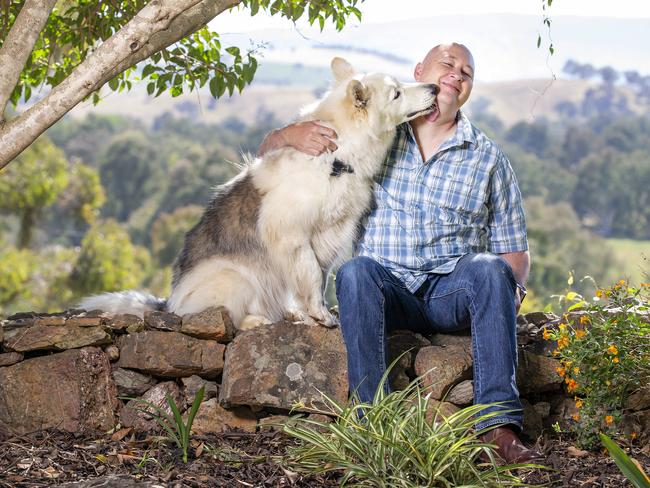
To combat the problem, Whiskeys Wish volunteers visit schools to educate children on the role of a service dog.
“Our message is to have a look at the vest,” Liz Jackman said.
“If it says ‘Service Dog, Do Not Touch’, then don’t touch. The dog is working.
“The fact these people with PTSD are able to go out and do things is our biggest success.”
Good knows it too.
“You can’t really quantify how much Ulric’s helped me,” he said.
“I’ve gone from being housebound to getting up and taking him for a walk, and being able to go into a shop without having to get my wife to do it. It’s given me a lot more independence.
“I wouldn’t be alive today if it wasn’t for that dog.”
Originally published as Why Matt Good, a former army investigator, credits his service dog with saving his life


